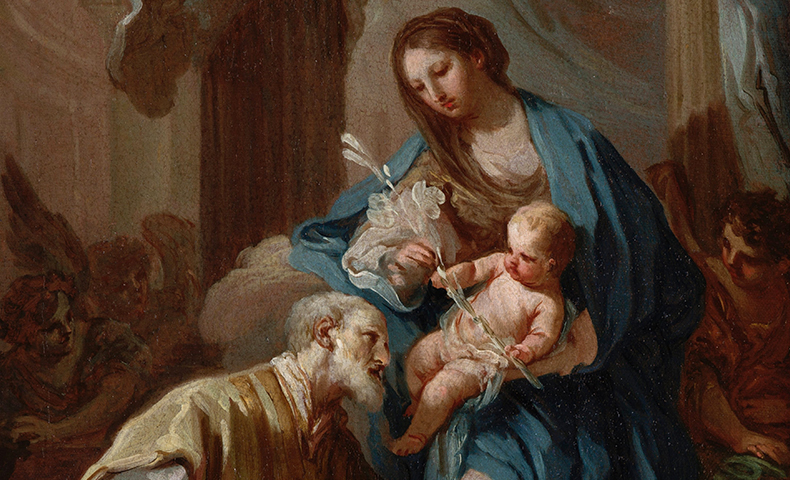San Filippo Neri, Saint of the day for May 26th

(July 21 1515 - May 26 1595)
The story of San Filippo Neri
Philip Neri was a sign of contradiction, combining popularity and piety against the background of a corrupt Rome and a selfless clergy: the whole post-Renaissance malaise.
At a young age, Filippo abandoned the possibility of becoming a businessman, moved to Rome from Florence and dedicated his life and individuality to God. After three years of studies in philosophy and theology, he gave up any thoughts on ordination . The following 13 years were spent in an unusual vocation at the time: that of a lay person actively engaged in prayer and apostolate.
While the Council of Trent (1545-63) was reforming the Church on a doctrinal level, Philip's captivating personality was conquering him friends from all levels of society, from beggars to cardinals. A group of lay people quickly gathered around him, conquered by his daring spirituality. Initially they met as a group of prayer and informal discussion and also served the poor of Rome.
At the request of his confessor, Philip was ordained a priest and soon became an exceptional confessor himself, gifted with the talent to pierce the claims and illusions of others, albeit always in a charitable way and often with a joke. He organized speeches, discussions and prayers for his penitents in a room above the church. Sometimes he conducted "excursions" to other churches, often with music and a picnic on the way.
Philip's followers became priests and lived together in community. This was the beginning of the Oratory, the religious institute he founded. A feature of their life was a daily afternoon service of four informal speeches, with vernacular hymns and prayers. Giovanni Palestrina was one of Filippo's followers and composed music for the services. The Oratory was finally approved after suffering for a period of accusations of being an assembly of heretics, in which lay people preached and sang vernacular hymns!
Philip's advice was requested by many of the leading figures of his time. He is one of the influential figures of the Counter-Reformation, mainly to convert many of the influential people within the Church to personal holiness. Its characteristic virtues were humility and cheerfulness.
After spending a day listening to confessions and receiving visitors, Filippo Neri suffered a bleeding and died on the feast of Corpus Domini in 1595. He was beatified in 1615 and canonized in 1622. Three centuries later, Cardinal John Henry Newman founded the first language English home of the London Oratory.
Reflection
Many people mistakenly think that such an attractive and playful personality like Philip's cannot be combined with intense spirituality. Filippo's life dissolves our rigid and restricted visions of piety. His approach to holiness was truly Catholic, all-inclusive and accompanied by a good laugh. Philip always wanted his followers to become no less but more human through their struggle for holiness.